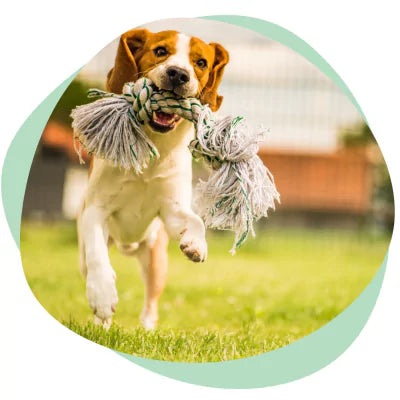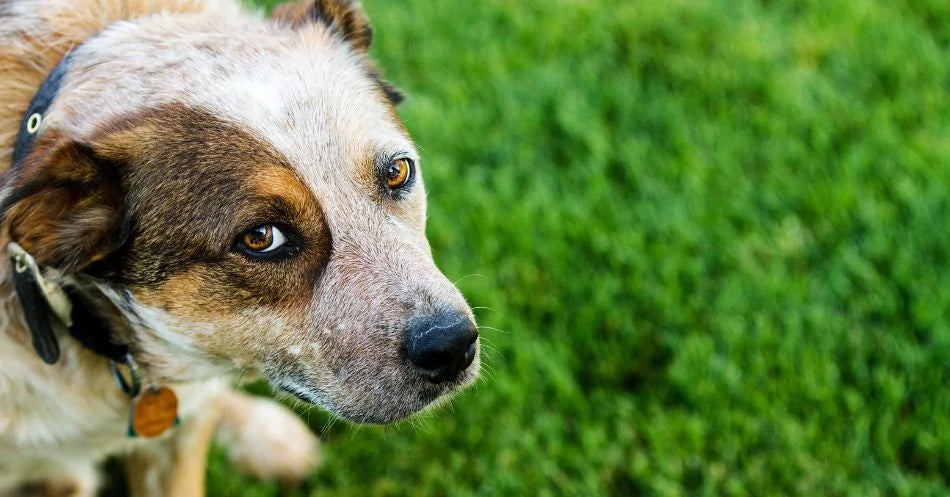Potty business is always serious business. Knowing what’s normal for your dog\'s digestive habits can make the difference between leaving your pup home unattended for one hour or several.
It can also make the difference between treating a case of constipation and addressing a more serious health problem. So just how long can a dog safely go without pooping?
How Long Can I Leave My Dog Alone without an Accident?
If you’re wondering how long your dog can be left alone without needing a potty break, the answer isn’t clear-cut. Every dog is different.
Puppies, like babies, need constant attention and TLC. Their tiny bladders and digestive systems are still unpredictable and untrained. There’s a general rule of thumb that puppies can “hold it” for one hour per month of age. For example, a puppy that’s four months old should be able to hold it for four hours. Adult dogs can go longer, some as much as six to eight hours before needing to relieve themselves.
However, all dogs, regardless of age, should be let out after eating and immediately upon waking.

The guiding principle here, though, is to avoid leaving your dog alone for long periods of time if you can help it. And, as a pet parent, a consistent routine can do wonders for helping your dog have regular consistent poops (without accidents!).
Even if your pup can go a while without peeing or pooping, the longer they lack access to a potty spot the more likely they are to get stressed and have an accident.
Dogs are creatures of habit. If they have a favorite “poop spot,” by all means encourage them to poop there!
The better you know your fur family, the better you will be able to gauge how long you can leave them alone and how long they can go without pooping.
On the other hand, some paw-rents face an entirely different conundrum: their dog hasn’t pooped in a couple of days, and they’re starting to get worried. Now what?
How Long Can My Dog Go Without Pooping Before I Should Worry?
Again, every dog is different. A teacup Yorkie will likely have different bathroom habits than a Great Dane. Getting to know your own dog’s potty routine can help you establish what’s normal and what’s not for your pup.
Your dog should be having a bowel movement every single day. Occasionally, your dog may skip a day, but if they haven\'t pooped in the last 48 hours, it\'s time to call the vet.

Is Your Dog Constipated?
Constipation can be a common problem for dogs. If your dog hasn’t pooped in a while, then this could be the culprit. Thankfully, most cases resolve on their own or with a few lifestyle changes - like drinking more water or getting more exercise. Just like people, your pup’s digestive system can get thrown off by changes in their routine such as traveling, eating new dog food, or not having easy access to their favorite pooping spot.
But if you are concerned about your dog’s constipation or if this is a recurring problem, look out for these signs as well:
- Passing small amounts of dry, hard poop
- Straining to defecate or difficulty passing stool
- Vocalizing (whining or crying) when trying to poop
- Scooting, circling, or squatting frequently
- Decreased appetite
- Vomiting
It can be worrying if you notice these symptoms in your dog, and it can signal that something more troubling is happening in your pup’s body. They may have a blockage or an underlying condition that prevents their constipation from resolving on its own.
Take them to the vet where they can get expert care, and you can find out exactly why your dog is having trouble doing their business.
Your vet will examine your dog head to tail and may perform a rectal exam, order blood work, or even do an x-ray just to be thorough.

- Dehydration
- An enlarged prostate
- Signs of kidney problems
- A mass in the colon or rectum
- Foreign objects like fabric or bones that could be causing a blockage
If your vet confirms that your pup is constipated, they’ll recommend some simple steps you can take to get them regular again. Most cases of constipation are easy to treat. Your vet may order IV fluids to hydrate your pup or prescribe enemas, laxatives, or stool softeners.
Once your dog gets a clean bill of health, there are steps you can take at home to help your dog.
Pin me!

How To Help a Constipated Dog
Unfortunately, constipation might become a recurring problem for your dog. The following steps can help prevent that:- Keep them hydrated. Your dog’s digestive system needs adequate water to keep things moving along! Your dog’s colon is responsible for absorbing water. So the more hydrated they are, the easier it will be for them to poop.
- Give them plenty of exercise. Taking your pup for long walks not only keeps them happy, but it keeps their bowels moving. A good game of fetch or a nice run can go a long way in helping their digestive system.
-
Feed them nutritious foods. The saying goes, “You are what you eat.” And if your pup is eating the wrong foods, they’ll have problems. Some dogs may have a harder time digesting kibble because of its low moisture content.
Our friend and Certified Canine Nutritionist, Hannah Zulueta, suggest switching to wet or cooked food, if possible. Whichever you choose, be sure your dog is getting enough fiber. Adequate fiber will help soften their stool and keep them regular. You can even talk to your veterinarian about using a fiber supplement.

Omega-3 fish oil is another safe and natural anti-inflammatory that can help your dog poop regularly. Fish oil contains omega-3 fatty acids, “good fats” that your dog’s body can’t produce on their own.
When added to their diet, omega-3 can prevent and improve inflammation in the body. Paws down, this is a must-have addition to any pup’s wellness routine.


FAQ’s
It\'s been 4 days since my dog pooped – what should I do? Visit your veterinarian. Most vets recommend an exam if your dog hasn’t pooped in 48 hours. They can do a full exam to check if there are any medical conditions that are keeping your dog from pooping.
Can I give my dog coconut oil or mineral oil to help them poop? Avoid giving your dog coconut oil, mineral oil, or any over-the-counter meds without consulting your veterinarian. Some of these things can cause more problems and even be toxic to your dog.

